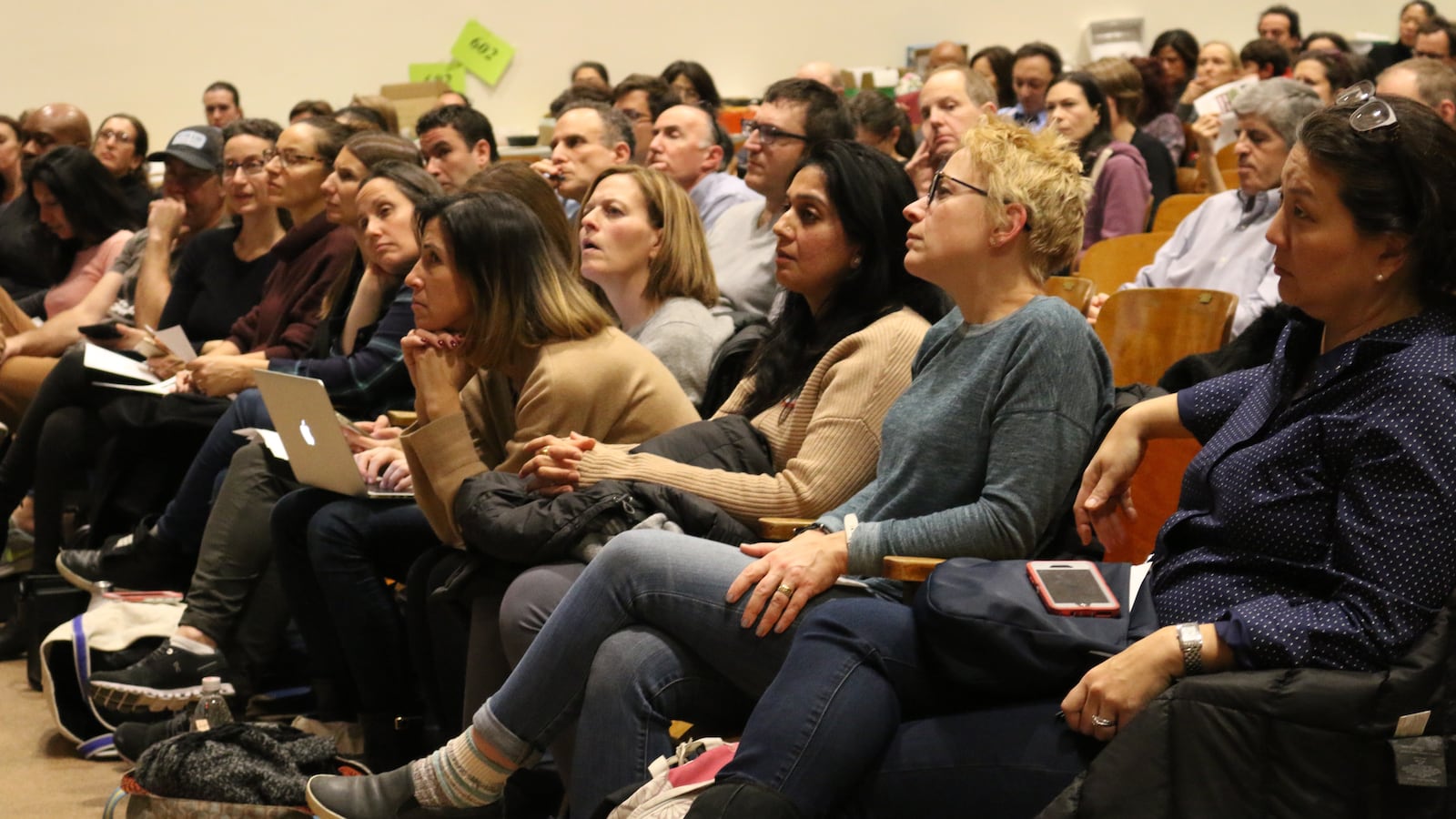Parents gathered at a middle school on the Upper West Side on Tuesday night and alternately applauded or booed as they sought to learn more about a controversial plan to overhaul how students are admitted to the city’s coveted but segregated specialized high schools.
Cheers went up when the specialized high school admissions test was described by an Asian advocate as unbiased — and again when a black man stood up to forcefully say that integrated schools benefit everyone.
The forum was organized by the Booker T. Washington middle school PTA, where parents took it into their own hands to try to spread more information about the city’s hotly debated integration plan. The forum, which packed the school auditorium, served as another reminder of the challenges ahead as the city looks to the state legislature to approve the proposed changes.
“We just felt the community was hungry for information,” said Chris Giordano, co-president of the parent association.
Mayor Bill de Blasio has called for the elimination of the Specialized High School Admissions Test, or SHSAT, which currently serves as the sole admissions criteria for the schools and is often blamed for segregation there. Just 10 percent of specialized high school students are black or Hispanic, while those students make up almost 70 percent of enrollment citywide.
His plan faces a steep climb. On Tuesday, John Liu, a Democrat from Queens who has said he supports maintaining the SHSAT, was appointed head of the state Senate’s New York City education subcommittee.
Absent from the forum were education department or city leaders who could answer parents’ questions. Officials had already visited the district in October, and at a meeting in neighboring District 2 last week, they met a mostly hostile crowd.
At Booker T., organizers said they wanted a more measured meeting, with multiple viewpoints elevated. They invited a panel of speakers and mostly took pre-selected questions. Though many in the crowd were parents from the school community, others were activists on either side of the long-running debate over the SHSAT.
Booker T. has served as a pipeline to the specialized high schools — but that would change if the overhaul is approved. Under the mayor’s plan, the top 7 percent of students at each middle school would be offered admission to specialized high schools; Last year, more than half of Booker T. graduates gained a specialized high school seat.
“Equity does mean that those who have more have to give up something. That’s what equity is,” said Patrick Joseph, senior education policy analyst for the Manhattan borough president, who has supported integration efforts but not the mayor’s plan. Joseph’s comments prompted murmurs from the crowd, and someone shouted, “No!”
Some of the parents who gathered called for an entirely different set of high school reforms: pushing for an expansion of specialized high schools, for example, or the elimination of a priority in neighboring District 2 that gives those residents first dibs at some of the city’s most sought-after schools.
“We need more excellent schools,” said Sharon Just, a parent in District 3.
The admissions changes have prompted fierce backlash among many in the Asian community; currently 62 percent of specialized high school students are Asian, while those students make up just 16 percent of enrollment citywide. David Lee, a specialized high school graduate and staunch advocate for keeping the admissions test in place, described the city’s changes as “pitting minorities against minorities.” His comment earned applause from the mostly white and Asian audience. (Enrollment at Booker T. is 58 percent white.)
The tone struck Everett Stembridge, a black integration advocate, who was the last speaker of the night, as ominous for diversity efforts.
“How can we bring people together? How can we focus on the benefits of integration?” he asked. “It’s going to take multicultural leadership, and I don’t see it happening.”


